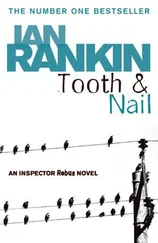FOR A LONG MOMENT I stared at the door, trying to work out what had happened, and then I looked at the regulars — the expressions on their faces — and at the other customers, locals or maybe even tourists who’d come in for a beer or burger or the catch of the day and had all this strangeness thrust on them, and finally at the cage. Daria was bent beside it, cooing to the animal inside, Ludwig’s eggs cradled in one hand. She was short and compact, conventionally pretty, with the round eyes and symmetrical features of an anime heroine, her running shoes no bigger than a child’s, her blond hair pulled back in a ponytail, and I’d noticed all that before, over the course of weeks of study, but now it came back to me with the force of revelation. She was beautiful, a beautiful girl propped on one knee while her shorts rode up in back and the T-shirt bunched beneath her breasts, offering this cat — my cat — the smallest comfort, as if it were a kitten she’d found abandoned on the street.
“Jesus, what are you going to do with the thing?” Chris had come out from behind the bar and he was standing beside me now, looking awed.
I told him I didn’t know. That I hadn’t planned on owning a wild cat, hadn’t even known they existed — servals, that is — until five minutes ago.
“You live around here?”
“Bayview Apartments.”
“They accept pets?”
I’d never really given it much thought, but they did, they must have — the guy next door to me had a pair of yapping little dogs with bows in their hair and the woman down the hall had a Doberman that was forever scrabbling its nails on the linoleum when she came in and out with it, which she seemed to do about a hundred times a day. But this was something different. This was something that might push at the parameters of the standard lease. “Yeah,” I said, “I think so.”
There was a single slot where the door of the cage fastened that was big enough to receive an egg without crushing its shell, and Daria, still cooing, rolled first one egg, then the other, through the aperture. For a moment, nothing happened. Then the cat, hunched against the mesh, shifted position ever so slightly and took the first egg in its mouth — two teeth like hypodermics, a crunch, and then the soft frictive scrape of its tongue.
Daria rose and came to me with a look of wonder. “Don’t do a thing till I get off, okay?” she said, and in her fervor she took hold of my arm. “I get off at nine, so you wait, okay?”
“Yeah,” I said. “Sure.”
“We can put him in the back of the storage room for now, and then, well, I guess we can use my pickup—”
I didn’t have the leisure to reflect on how complex things had become all of a sudden, and even if I had I don’t think I would have behaved any differently. I just nodded at her, stared into her plenary eyes and nodded.
“He’s going to be all right,” she said, and added, “He will,” as if I’d been disagreeing with her. “I’ve got to get back to work, but you wait, okay? You wait right here.” Chris was watching. The manager was watching. The regulars had all craned their necks and half the dinner customers too. Daria patted down her apron, smoothed back her hair. “What did you say your name was again?”
SO I HAD A CAT. And a girl. We put the thing in the back of her red Toyota pickup, threw a tarp over it to keep the rain off, and drove to Von’s, where I watched Daria march up and down the aisles seeking out kitty litter and the biggest cat pan they had (we settled for a dishpan, hard blue plastic that looked all but indestructible), and then it was on to the meat counter. “I’ve only got ten bucks,” I said.
She gave me a withering look. “This animal’s got to eat,” she informed me, and she reached back to slip the band from her ponytail so that her hair fell glistening across her shoulders, a storm of hair, fluid and loose, the ends trailing down her back like liquid in motion. She tossed her head impatiently. “You do have a credit card, don’t you?”
Ten minutes later I was directing her back to my building, where I had her park next to the Mustang I’d inherited when my father died, and then we went up the outside stairs and along the walkway to my apartment on the second floor. “I’m sorry,” I said, swinging open the door and hitting the light switch, “but I’m afraid I’m not much of a housekeeper.” I was going to add that I hadn’t expected company either, or I would have straightened up, but Daria just strode right in, cleared a spot on the counter and set down the groceries. I watched her shoulders as she reached into the depths of one bag after another and extracted the forty-odd dollars’ worth of chicken parts and ribeye steak (marked down for quick sale) we’d selected in the meat department.
“Okay,” she said, turning to me as soon as she’d made space in the refrigerator for it all, “now where are we going to put the cat, because I don’t think we should leave it out there in the truck any longer than we have to, do you? Cats don’t like the rain, I know that — I have two of them. Or one’s a kitten really.” She was on the other side of the kitchen counter, a clutter of crusted dishes and glasses sprouting various colonies of mold separating us. “You have a bedroom, right?”
I did. But if I was embarrassed by the state of the kitchen and living room — this was my first venture at living alone, and the need for order hadn’t really seemed paramount to me — then the thought of the bedroom, with its funk of dirty clothes and unwashed sheets, the reeking workboots and the duffel bag out of which I’d been living, gave me pause. Here was this beautiful apparition in my kitchen, the only person besides my aunt who’d ever stepped through the door of my apartment, and now she was about to discover the sad lonely disorder at the heart of my life. “Yeah,” I said, “that door there, to the left of the bathroom,” but she was already in the room, pushing things aside, a frown of concentration pressed between her eyes.
“You’re going to have to clear this out,” she said. “The bed, everything. All your clothes.”
I was standing in the doorway, watching her. “What do you mean ‘clear it out’?”
She lifted her face. “You don’t think that animal can stay caged up like that, do you? There’s hardly room for it to turn around. And that’s just cruel.” She drilled me with that look again, then put her hands on her hips. “I’ll help you,” she said. “It shouldn’t take ten minutes—”
Then it was up the stairs with the cat, the two of us fighting the awkwardness of the cage. We kept the tarp knotted tightly in place, both to keep the rain off the cat and disguise it from any of my neighbors who might happen by, and though we shifted the angle of the thing coming up the stairs, the animal didn’t make a sound. We had a little trouble getting the cage through the doorway — the cat seemed to concentrate its weight as if in silent protest — but we managed, and then we maneuvered it into the bedroom and set it down in the middle of the rug. Daria had already arranged the litter box in the corner, atop several sheets of newspaper, and she’d taken my biggest stewpot, filled it with water and placed it just inside the door, where I could get to it easily. “Okay,” she said, glancing up at me with a satisfied look, “it’s time for the unveiling,” and she bent to unfasten the tarp.
The overhead light glared, the tarp slid from the cage and puddled on the floor, and there was the cat, pressed to the mesh in a compression of limbs, the yellow eyes seizing on us. “Nice kitty,” Daria cooed. “Does he want out of that awful cage? Hmm? Does he? And meat — does he want meat?”
So far, I’d gone along with everything in a kind of daze, but this was problematic. Who knew what the thing would do, what its habits were, its needs? “How are we going to—?” I began, and left the rest unspoken. The overhead light glared down on me and the alcohol whispered in my blood. “You remember what that guy said about feeding him, right?” In the back of my head, there was the smallest glimmer of a further complication: once he was out of the cage, how would we — how would I — ever get him back into it?
Читать дальше












